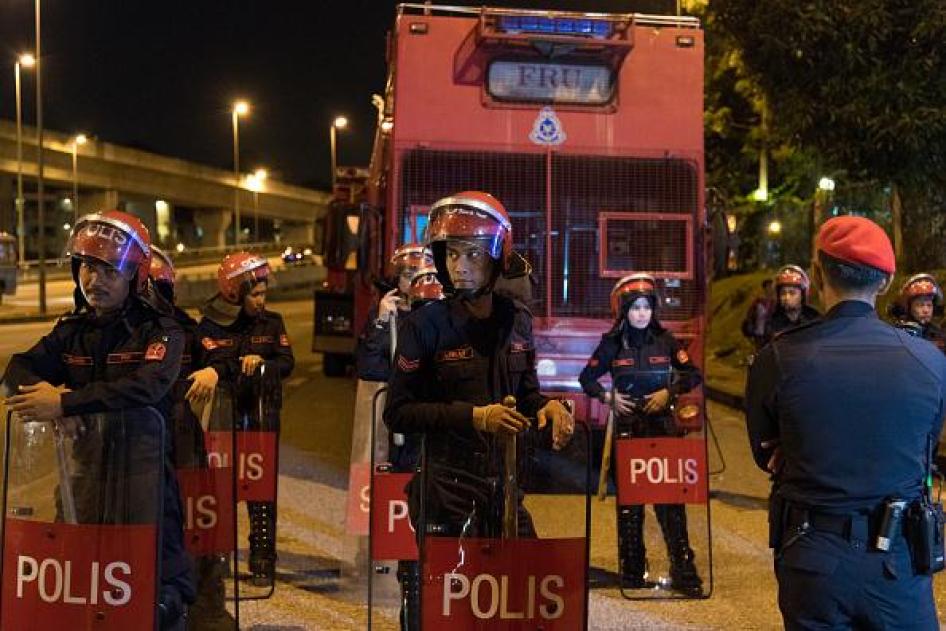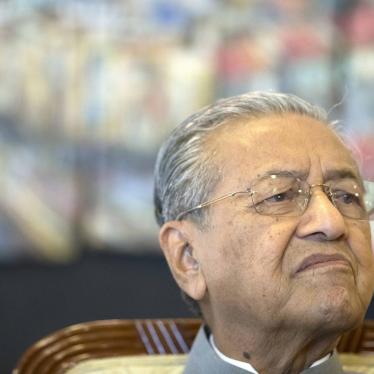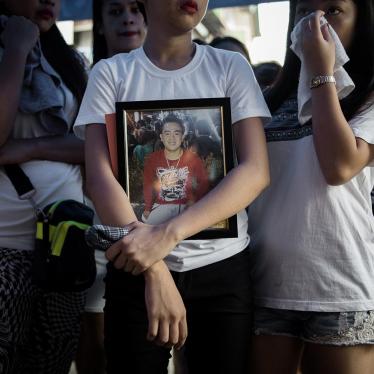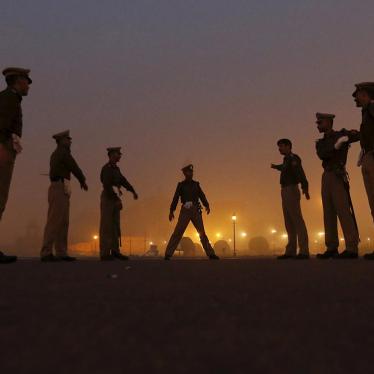(Bangkok) – The Malaysian government’s proposed police complaints commission is an important step toward accountability for abuses by police, Human Rights Watch said today. A bill creating an Independent Police Complaints of Misconduct Commission was submitted to parliament for a first reading on July 18, 2019, and a second reading is scheduled for October.
“Malaysia has long needed an independent police complaints commission to hold officers who commit misconduct, including abuses against people in custody, to account,” said Phil Robertson, deputy Asia director. “The proposed law is a major step, but broad consultations are crucial so that the commission created is truly independent and effective.”
Allegations of police corruption and excessive use of force have dogged the Malaysian police for decades, culminating in the establishment of the Royal Commission to Enhance the Operation and Management of the Royal Malaysian Force in 2004. In 2005, that commission recommended the creation of an independent body to investigate complaints of misconduct against the police and take necessary disciplinary action. The election of the Pakatan Harapan government in May 2018, which ran on a platform promising that all allegations of police misconduct would be investigated in a fair and comprehensive way, gave new life to the call for establishing an independent police complaints commission.
Under the draft law, the Yang di-Pertuan Agong, or king, will appoint commission members with input from the prime minister. None can be current or former members of the police force. The commission will have the power to summon witnesses and compel the production of documents, and noncompliance is subject to criminal penalties. The commission will also have disciplinary powers over the police, through a disciplinary board consisting of three members of the commission, one representative from the police force, and one member of the Police Force Commission who is not a police officer.
Some of the bill’s provisions raise concerns about the independence of the commission, Human Rights Watch said. The proposed law would allow the prime minister to unilaterally change the composition of the disciplinary board and to issue regulations regarding procedures for the handling of complaints and the conduct of disciplinary proceedings. Both provisions would create opportunities for political interference with the commission.
The bill also fails to clarify the commission’s powers to order criminal investigations of police officers and provide effective oversight of criminal prosecutions. While the commission is empowered to investigate criminal offenses by the police, the bill states that “where the findings disclose any criminal offense under any written law,” the commission “shall refer the findings to the relevant authority.” The bill does not specify whether the “relevant authority” is the attorney general’s office or the police, nor does it empower the commission to take follow-up action if no investigation is pursued.
“It’s crucial that the police complaints commission not only investigates police abuse, but also ensures that criminal offenses by police are fully and fairly prosecuted,” Robertson said. “The government should use the coming months to consult widely with human rights groups and other stakeholders about the bill to ensure that the eventual law brings about real changes in police conduct.”









